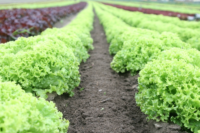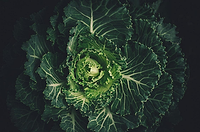FDA Tests Romaine Lettuce in Yuma Growing Region for Pathogens

Today, the U.S. Food and Drug Administration (FDA) released the results of a sampling assignment involving romaine lettuce that was grown in the Yuma, AZ, growing region.
FDA tested some of the area’s romaine lettuce for two pathogens: Shiga toxin-producing Escherichia coli (STEC) and Salmonella spp in what appears to be a proactive and preventive effort after the 2018 E.coli O157:H7 outbreak that was traced back to romaine lettuce from the Yuma growing region. That outbreak—which caused 210 illnesses in 36 states—claimed the lives of five people. Besides that outbreak, FDA says that there have been five other suspected or confirmed multistate outbreaks of foodborne illness linked to produce harvested in the Yuma growing region since 2012.
FDA’s sample testing began in mid-December 2018, shortly after the season’s harvest began. The purpose was the monitor the risk of contaminated romaine lettuce entering the market from the Yuma growing region.
Sampling took place at commercial coolers and cold storage facilities where field heat is removed from harvested romaine and product is cold-stored before shipment. This allowed FDA to collect samples from multiple farms simultaneously from centralized locations. This also made it easier to identify the farms from which each sample originated.
In total, FDA’s field staff visited 26 commercial coolers and cold storage facilities in the Yuma growing region with help from the Arizona Department of Agriculture and the Arizona Department of Health Services.
The assignment allowed for the collection and testing of 118 samples for each pathogen. Here’s what the agency found:
- None of the samples tested positive for Salmonella
- One sample did test positive for STEC, but it was later confirmed that the bacteria was not pathogenic
Overall, according to FDA, the findings of this assignment suggest that there was no widespread STEC or Salmonella spp. contamination of romaine lettuce from the Yuma growing region during the period when the sampling occurred. The FDA is continuing to work with leafy greens stakeholders in the Yuma region to consider a longer-term environmental study to identify and control risks that will prevent future outbreaks, with the ultimate goal of protecting consumers.
Sign up for Food Safety Magazine’s bi-weekly emails!
Subscribe to our podcast: Food Safety Matters!
Looking for a reprint of this article?
From high-res PDFs to custom plaques, order your copy today!





